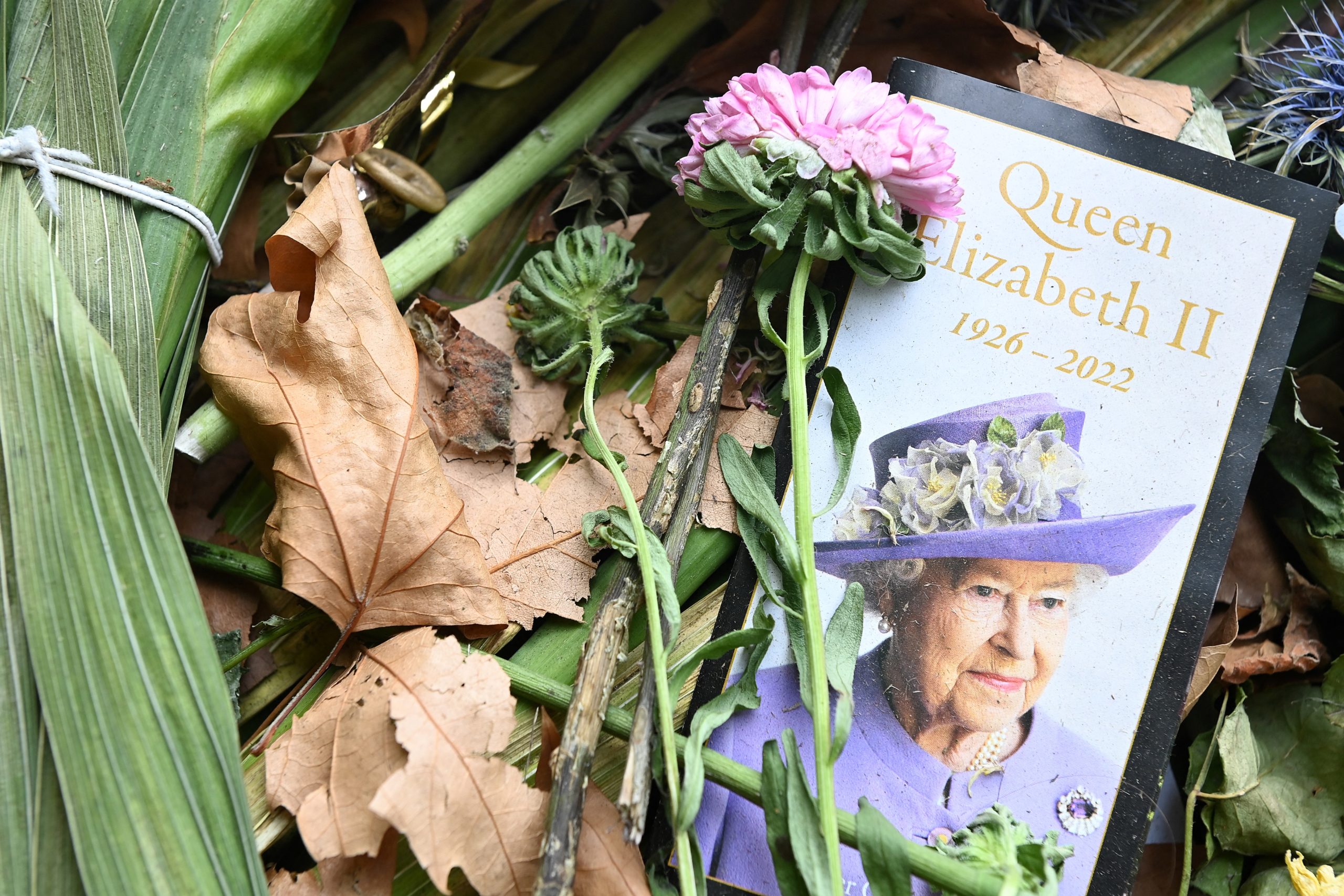Meghan Markle obsesses us because she is a symbol of our willful degeneration.
Within the Hollow Crown

Russell Brand, Charles Taylor, and the Meaning of the Royal Funeral.
In A Secular Age, the philosopher Charles Taylor explores moments of “festive anti-structure” in pre-modern societies. These moments permitted a break from “profane, ordinary” life and served as “kairotic knots,” reminding the public that “chronos” (temporal or secular time) is perforated by sacred time. In other words, these communal gatherings put the “natural” in tension with “supernatural” (and at times, “unnatural”) forces. These moments also served to unify the community, as they highlighted the common transcendent origin and destiny of all people, regardless of their social status.
A classic example is Carnival, or other events where things normally considered morally inappropriate were permitted: things like cross-dressing, public drunkenness, sexual obscenity…or more benign gestures, like children dressing as bishops. Despite widespread secularization in the West, we can still find contemporary parallels. Taylor offers examples like rock concerts, the Olympics, and Princess Diana’s funeral: “There is a heightened excitement at these moments of fusion…a powerful common feeling. What is happening is that we are all being touched together, moved as one, sensing ourselves as fused in our contact with something greater, deeply moving, or admirable.”
Though I was only five years old when Princess Diana died, I remember the visceral feeling of collective mourning as I saw clips of her funeral on T.V. and images in newspapers. Though I couldn’t have articulated it at the time, I recognized the loss of a deific figure, an idol even, who symbolized a collective desire for unifying, transcendent ideals like Beauty and Goodness.
But Taylor’s comments came back to me with even greater force as I watched the funeral of Queen Elizabeth II on YouTube. Between the soldiers, costumed musicians, throngs of mourners, majestic architecture of Westminster Abbey, angelic singing of the schola, and the poetically hope-filled prayers of the Archbishop, I couldn’t help but feel as if something sacred were reaching down into my normally mundane workday and imbuing it with a tinge of transcendent beauty.
The internet blew up with commentary on the historic event, with numerous people opining that “no one does pageantry like the British.” Among the more interesting commentators was the comedian (and now spiritual guru) Russell Brand, who expressed that the funeral was somewhere between “the divine and the absurd”: divine because of the association of the queen with the notion of the “Great Mother” or “sacred feminine” archetype, and absurd because of the hollowness of this symbolic association. The monarchy no longer holds any “real” power in British government and world affairs, and despite serving as the “defender of the [Anglican] Faith,” has largely accommodated itself to the tenets of secular humanism. Brand then cast familiar moral aspersions on the monarchy’s involvement with colonialism and social oppression.
Taylor had something similar to say about the hollowness of externally religious ceremonials, like the funeral of the queen mother. Rather than being formally recognized as a moment of anti-structure, these vestigial burlesques are rendered mere remnants, artifacts of times past. And, writes Taylor, much as the religious content is emptied out of these events, the powerful elites labor “to render our religious and/or moral lives more personal and inward, to disenchant the universe and downplay the collective.”
Arbiters of the civil or secular code thus render their power immune from having to be kept in check by the kinds of transcendent forces that become more palpable during moments of anti-structure. The “self-enclosed” secular imagination, where power is not checked by any higher entities, clears the path for a new globalist metanarrative, which fills the cosmic vacuum and transfers the power of transcendent forces into the hands of powerful elites…all with the veneer, of course, of democratic egalitarianism, widespread prosperity, and justice for all. It’s not exactly hard to recognize this ethos in the increasingly globalistic (and borderline gnostic) tone adopted by the former prince, now King Charles III, since the onset of the COVID-19 pandemic. One is made to call into question the significance of the royal family’s involvement in Freemasonry, and whether the identification of the secret society with visions of global homogenization are merely the stuff of outlandish conspiracy theories.
Brand closes his commentary on the funeral claiming that the death of the queen marks an epochal shift. The symbolic figure who constituted the fabric of a common British identity has now fallen. Brits will be forced to sift through the truths and narratives they have taken for granted to be true for so many years. Perhaps this is an opportunity, posits Brand, to create a more just and egalitarian social order. Alternatively, this could be a chance to recover certain transcendent truths that have been covered over by the neoliberal secular mentality that has become pervasive not only in England, but in most of the Western world.
We cannot be certain of society’s trajectory post-QEII. Society will change, for better or worse, and change radically. Its way of ritualizing and expressing transcendent truths may change. But what will certainly not change is the ontological makeup of the human person, whose heart continues to cry out for something beyond this realm. Silence it, suffocate it as you may, but some things remain stubbornly eternal.
The American Mind presents a range of perspectives. Views are writers’ own and do not necessarily represent those of The Claremont Institute.
The American Mind is a publication of the Claremont Institute, a non-profit 501(c)(3) organization, dedicated to restoring the principles of the American Founding to their rightful, preeminent authority in our national life. Interested in supporting our work? Gifts to the Claremont Institute are tax-deductible.
Elizabeth II understood her duty—do we?


